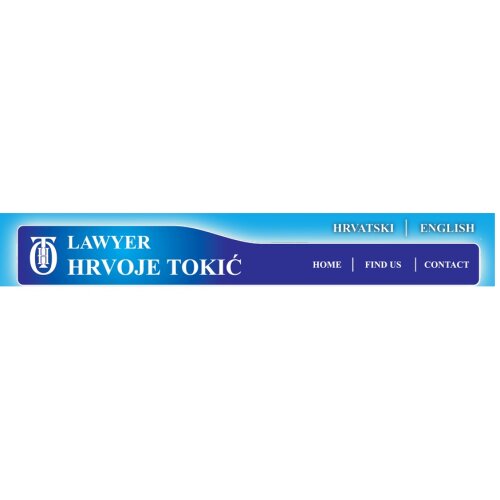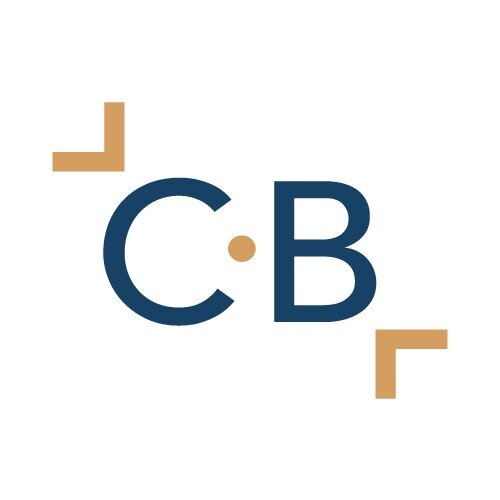Best Antitrust Litigation Lawyers in Croatia
Share your needs with us, get contacted by law firms.
Free. Takes 2 min.
Or refine your search by selecting a city:
List of the best lawyers in Croatia
About Antitrust Litigation Law in Croatia
Antitrust litigation in Croatia refers to legal actions brought to address violations of competition law, which is designed to promote fair and effective competition in the marketplace. The main objective is to prevent practices such as price fixing, abuse of dominant position, bid rigging, and other forms of market manipulation that can harm businesses and consumers. Croatia's antitrust framework is harmonized with European Union competition rules, ensuring that businesses operate on a level playing field. Disputes may arise between competitors, consumers, or regulatory authorities and businesses that are suspected of breaching competition law.
Why You May Need a Lawyer
Antitrust litigation is complex and can have significant financial and reputational consequences for businesses or individuals involved. Some common situations where legal help may be needed include:
- Facing an investigation by the Croatian Competition Agency for alleged anti-competitive practices
- Being accused of abusing a dominant position in the market
- Participating, knowingly or unknowingly, in a cartel or price fixing scheme
- Seeking damages after being harmed by another company's anti-competitive behavior
- Responding to claims filed by competitors or consumers
- Understanding compliance obligations and implementing internal policies
- Challenging decisions or fines imposed by regulatory bodies
A lawyer specializing in antitrust litigation can provide essential guidance, represent you before authorities or courts, and help safeguard your interests.
Local Laws Overview
Antitrust legislation in Croatia is primarily governed by the Competition Act (Zakon o zaštiti tržišnog natjecanja), which outlines prohibited practices and the powers of the Croatian Competition Agency (Agencija za zaštitu tržišnog natjecanja or AZTN). Key elements include:
- Prohibited Agreements: Agreements between businesses that restrict competition, such as price fixing, market sharing, or bid rigging, are illegal unless they meet certain exemptions.
- Abuse of Dominant Position: Companies holding a dominant market position are prohibited from abusing that power, for example through predatory pricing or refusal to supply.
- Merger Control: Certain mergers and acquisitions must be notified to and approved by AZTN to ensure they do not hinder competition.
- Sanctions: Violations can result in significant fines, as well as damage claims from affected parties. Leniency programs exist for participants who report and cooperate with investigations.
- Procedures: Proceedings involve detailed investigations, potential interim measures, and hearings before the Croatian Competition Agency. Decisions made by the agency can be challenged before the Administrative Court.
- EU Influence: Croatian laws closely follow EU antitrust regulations, and EU law may apply directly in certain cases, particularly those with a cross-border impact.
Frequently Asked Questions
What constitutes a breach of antitrust law in Croatia?
A breach typically involves prohibited agreements between businesses, abuse of a dominant position, or failing to notify and obtain approval for certain mergers and acquisitions. Any activity that restricts or distorts competition may be considered a violation.
Who enforces antitrust laws in Croatia?
The Croatian Competition Agency (AZTN) is the main authority responsible for investigating and enforcing antitrust laws in Croatia. In some cases, the European Commission may have jurisdiction.
How are investigations started?
Investigations may begin following complaints from competitors, consumers, or other parties; through the agency's own initiative; or via leniency applications from parties involved in anti-competitive conduct.
What penalties can be imposed for violations?
Sanctions can include considerable financial fines, orders to cease prohibited conduct, and, in certain cases, personal liability for individuals involved. Criminal sanctions may apply in the most severe cases.
Can victims of anti-competitive behavior seek compensation?
Yes, individuals or businesses harmed by antitrust violations can file private damages claims against the infringing company for losses suffered.
What is the leniency program and how does it work?
The leniency program allows companies or individuals involved in a cartel to report their participation to authorities, in exchange for immunity from fines or reduced penalties if specific criteria are met.
Are international mergers subject to Croatian review?
If a merger affects the Croatian market and meets certain turnover thresholds, it must be notified to AZTN, even if the transaction has an international dimension.
Can decisions made by the Croatian Competition Agency be appealed?
Yes, parties can challenge decisions made by the AZTN before the Administrative Court of Croatia, especially regarding fines or the agency's findings.
How long do antitrust investigations typically last?
The duration varies based on the complexity of the case, ranging from several months to over a year, depending on the scope and evidence involved.
What steps can businesses take to ensure compliance?
Businesses should implement internal compliance programs, conduct regular legal audits, and provide training to staff to prevent unintentional violations of antitrust law.
Additional Resources
- Croatian Competition Agency (AZTN): The main regulatory authority for competition and antitrust matters, providing guidelines, decisions, and information for businesses and the public.
- Ministry of Economy and Sustainable Development: Offers resources and policy updates regarding economic regulation and competition.
- Croatian Bar Association: Directory of legal professionals specializing in competition and antitrust law.
- Court System: Administrative and commercial courts handle appeals and damages claims related to antitrust litigation.
- European Commission - Competition Directorate-General: For cases involving cross-border or EU-level competition issues.
Next Steps
If you suspect anti-competitive conduct, have received a notice from the Croatian Competition Agency, or believe your business may be at risk, consider taking the following steps:
- Gather all relevant documentation and evidence, including contracts, correspondence, and meeting records.
- Consult a lawyer experienced in antitrust litigation as soon as possible to assess your situation and risks.
- Do not attempt to destroy or withhold evidence, as this can worsen your position in any investigation or proceeding.
- Implement or review your internal compliance procedures to prevent future infractions.
- Keep informed about your rights and obligations under Croatian and EU competition law.
An early and informed legal response is crucial in antitrust matters, allowing you to manage risks, protect your interests, and ensure compliance with local and European regulations.
Lawzana helps you find the best lawyers and law firms in Croatia through a curated and pre-screened list of qualified legal professionals. Our platform offers rankings and detailed profiles of attorneys and law firms, allowing you to compare based on practice areas, including Antitrust Litigation, experience, and client feedback.
Each profile includes a description of the firm's areas of practice, client reviews, team members and partners, year of establishment, spoken languages, office locations, contact information, social media presence, and any published articles or resources. Most firms on our platform speak English and are experienced in both local and international legal matters.
Get a quote from top-rated law firms in Croatia — quickly, securely, and without unnecessary hassle.
Disclaimer:
The information provided on this page is for general informational purposes only and does not constitute legal advice. While we strive to ensure the accuracy and relevance of the content, legal information may change over time, and interpretations of the law can vary. You should always consult with a qualified legal professional for advice specific to your situation.
We disclaim all liability for actions taken or not taken based on the content of this page. If you believe any information is incorrect or outdated, please contact us, and we will review and update it where appropriate.
Browse antitrust litigation law firms by city in Croatia
Refine your search by selecting a city.

















